- Mon - Sat, 10:30 AM to 07:00 PM
- + 91 98947 99699
- admin@mesodental.in
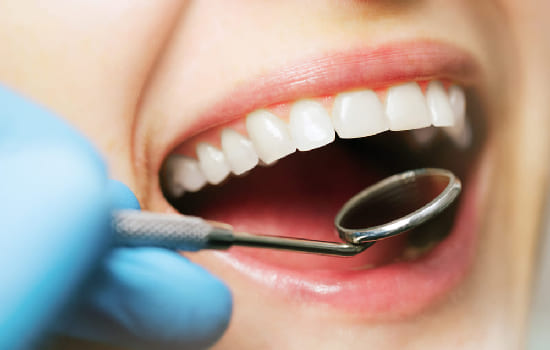
Even if you brush and floss regularly and with the proper technique, bacteria and plaque can still lurk in places you cannot see with your naked eye. That’s why it’s important to come for a regular check-up and scaling and polishing appointment with your dentist. For most people, we would recommend getting this done every 6 months. Come down to Meso Dental for a convenient and fuss-free check-up today!
A regular dental check-up usually will include scaling and polishing and fluoride treatment. Every 1-2 years, it is also recommended that you take x-rays to identify any hidden areas of concern.
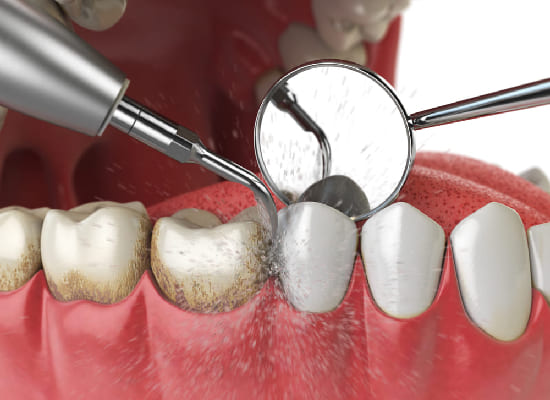
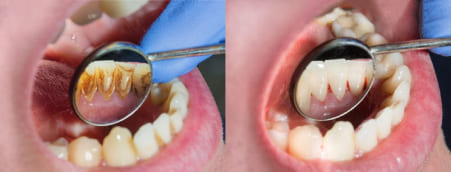
Scaling gets rid of plaque, tartar and bacterial toxins on the teeth. This helps to keep your teeth and gums healthy, preventing gum disease and bad breath. If you are experiencing bleeding gums, you may have an early stage of gum disease and may be required to do a more intensive gum treatment called root planing.
Polishing is usually performed after scaling to eliminate stains caused by coffee, tea or red wine. Normally, your dentist will use a soft rubber cup together with a mildly gritty paste to polish your teeth. Sometimes, a “prophyjet” may be used. This instrument will blast a spray of powder on your teeth to remove more stubborn stains. Polishing will leave your pearly-whites smooth and clean.
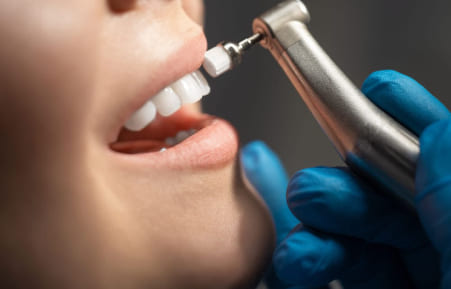
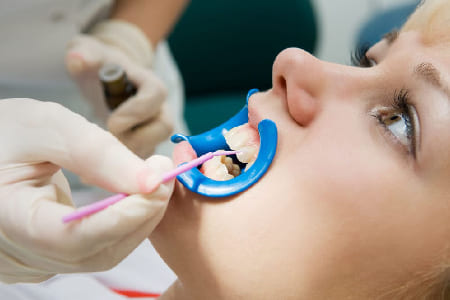
Fluoride is an important mineral that helps keep tooth decay at bay. We recommend that you have fluoride treatment done every 6 months, together with your routine scaling and polishing, for your teeth and gums to be in the best health. The enamel layer of our teeth will gradually be eroded by the acidic food and drinks that we consume or the acids that are produced by bacteria in the mouth. Fluoride treatments done in a dental clinic can help to strengthen our tooth enamel, through the process of “remineralization”. This helps prevent and even reverse tooth decay. The fluoride, which may take the form of a gel, cream or varnish, will be applied to your teeth and left there to be absorbed.
It is normal to experience slight bleeding during/after your scaling and polishing. The bleeding will usually stop after a while.
You may experience some slight sensitivity in your tooth after the treatment, especially if you have existing tooth sensitivity or gum recession. If you have gum disease, the roots of your teeth are no longer protected by your gums and become covered by plaque and tartar. After removing plaque and tartar, the roots become more exposed and will feel more sensitive. Some things that may help reduce sensitivity are using a sensitivity toothpaste or having your dentist apply a fluoride varnish after the cleaning. You should also avoid consuming acidic foods and drinks (eg coffee, tea, citrus fruits) or using whitening products immediately before and after your scaling and polishing appointment.
It is recommended that you undergo fluoride treatment and take an x-ray together with your routine scaling and polishing. Generally, fluoride treatment and x-rays should be done every 6 months and 1 to 2 years respectively. If decay is identified during these check-ups, your dentist may suggest doing a filling in the same appointment if time permits.
For maximum benefit, you should not rinse, eat or drink for 30 minutes following the treatment.